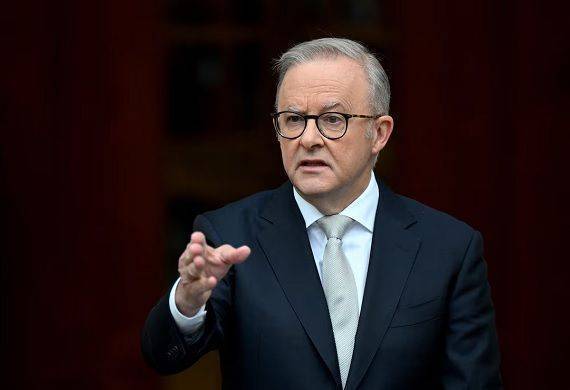Australia Rules Out Co-Hosting COP31 Summit With Turkey
By Global Leaders Insights Team | Nov 17, 2025

Australia has ruled out co-hosting next year’s COP31 climate summit with Turkey, saying the option is not allowed under United Nations climate-summit rules.
Prime Minister Anthony Albanese said the UNFCCC does not provide any mechanism for joint hosts. “No, we won’t be co-hosting because co-hosting isn’t provided for under the rules… So that’s not an option, and people are aware that it is not an option,” he told reporters in Melbourne.
The standoff over COP31 has dragged on for more than two years. Australia and Turkey both submitted bids in 2022, and neither has withdrawn. Turkey had suggested a joint hosting arrangement to break the bid deadlock, according to diplomatic sources, but Australia has now formally rejected the proposal.
- Australia rejects Turkey’s proposal to co-host COP31 due to UNFCCC rules.
- Bid deadlock continues as Australia and Turkey compete for the 2025 climate summit.
- Decision on COP31 host expected at COP30 as pressure mounts on UN negotiators
Albanese said the matter needs to be settled at the ongoing COP30 summit in Belém, Brazil. Negotiators are under pressure to reach a decision soon, as countries typically need months to prepare for the annual climate summit, which brings together nearly 200 nations.
Australia’s bid is backed by Pacific Island nations, which argue that hosting the summit in the region would draw attention to climate-driven threats such as sea-level rise and extreme weather. The support is politically important for Canberra, which has been working to strengthen ties with Pacific governments.
Earlier this month, Albanese wrote to Turkish President Tayyip Erdogan in an effort to address the impasse directly. However, there has been no public indication that either side is willing to step aside.
Also Read: Eduardo Bolsonaro to be Tried for Seeking Trump's Help in Brazil Case
Hosting a COP gives the selected country major influence over the global climate agenda for the year, including negotiations on emissions targets, climate finance, and adaptation efforts. With co-hosting ruled out, the decision now hinges on whether Australia or Turkey can secure full support from UN member states.
.jpg)



